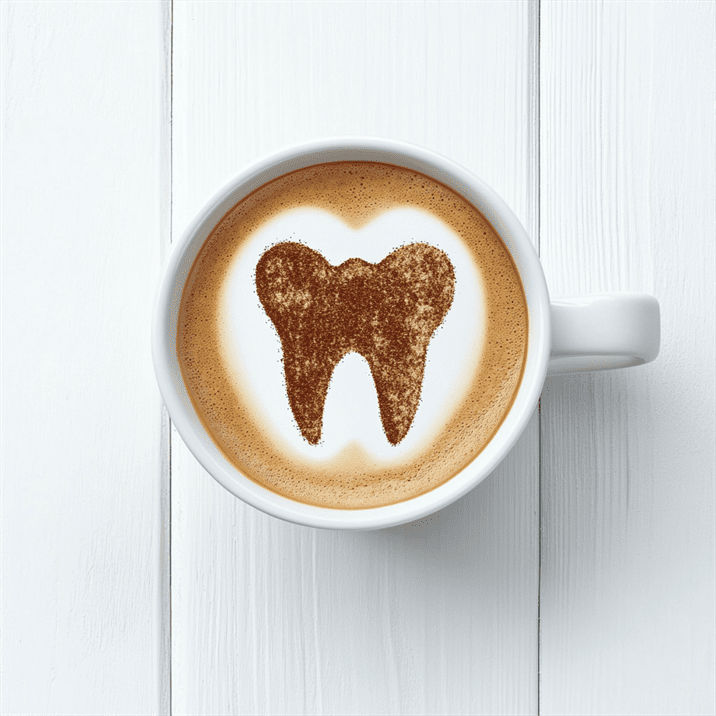The 7 Most Shocking and Revealing Reasons Why Some Coffee Brands Visually Stain Teeth More Than Others
Table of Contents
Why Do Some Coffee Brands Stain Teeth More Than Others?
Coffee is one of the most popular beverages in the world, beloved for its rich flavor and energizing caffeine kick. Whether it’s a smooth latte or a bold espresso, coffee has a place in the daily routine of millions of people. However, one common concern among coffee drinkers is the staining effect that coffee can have on teeth.
It’s no secret that coffee has the potential to stain your teeth, leaving behind a yellowish or brownish tint that can be hard to remove. But what many coffee drinkers don’t realize is that not all coffees are created equal when it comes to their ability to stain your teeth. Some coffee brands seem to cause more staining than others. But why does this happen? What factors contribute to how much a coffee stains your teeth, and how can you make more informed choices about the coffee you drink?
In this article, we’ll explore the reasons why some coffee brands stain teeth more than others, the science behind it, and what you can do to enjoy your cup of coffee without worrying about the long-term effects on your smile.
1. The Role of Acidity in Coffee
One of the key factors that contribute to coffee staining teeth is its acidity. Coffee is naturally acidic, and the level of acidity can vary greatly between different types of beans and brewing methods. The more acidic the coffee, the more likely it is to contribute to the erosion of tooth enamel.
Tooth enamel is the thin outer layer that protects your teeth from damage and decay. Acidic beverages like coffee can weaken enamel over time, making it more susceptible to staining from pigments and tannins found in coffee.
Light roast coffees tend to be more acidic than darker roasts because they are roasted for a shorter period. This increased acidity can cause more enamel erosion, leading to a higher likelihood of staining. On the other hand, dark roast coffees have a lower acidity, which makes them slightly less likely to stain your teeth. The longer roasting process reduces the amount of acid in the beans, making the coffee smoother and less damaging to enamel.
2. Tannins and Pigments in Coffee
Another major factor that determines how much coffee stains your teeth is the presence of tannins and pigments in the coffee. Tannins are naturally occurring compounds in coffee beans that contribute to the astringent, bitter taste of coffee. They are also the primary culprits behind staining. Tannins have a strong affinity for tooth enamel, and when they come into contact with the enamel surface, they can bind to it, causing discoloration over time.
The darker the roast, the more caramelization occurs, which may reduce the effect of tannins. However, medium and light roasts often contain higher levels of these staining compounds, which can cause more visible discoloration on your teeth.
Some coffee brands also include flavor additives, such as syrups, creamers, or milk, which may also contribute to staining, depending on their ingredients. For example, coffees with darker syrup
3. Brewing Method and Coffee Concentration
The brewing method you use also plays a significant role in how much your coffee wiespresso, Turkish coffee, or French press tend to have a higher concentration of coffee particles in the final cup. These methods extract more of the coffee’s nat
On the other hand, drip coffee or cold brew coffee tends to be l
Espresso is known to be especially strong and can have a higher chance of causing staining, not just because of the concentration of coffee, but also because of the interaction between the *hot temperature and the enamel, which makes the surf
4. How Often You Drink Coffee
The frequency with which you consume coffee can also influence how much staining occurs. Coffee doesn’t stain your teeth overnight, but over time, regular consumption can lead to gradual buildup of stains.
Addi
5
Not all coffee brands are created equal when it comes to staining. Higher-quality coffee beans often undergo more careful processing, which can reduce the amount of tannins and acids in the final product. On the other hand, cheaper brands or low-quality beans may have
Specialty coffee brands often have a more
6. How to Reduce Coffee Staining
While it may not be p
- Rinse your mouth: After drinking c
- Brush your teeth regularly: Brushing your teeth at le
- Drink through a straw: Using a straw can help minim
- Opt for a dark roast: If staining is a major concern, opt for dark roast coffees, wh
Conclusion
Not all coffee brands stain teeth in the same way. The acidity, tannins, and brewing method of coffee a

